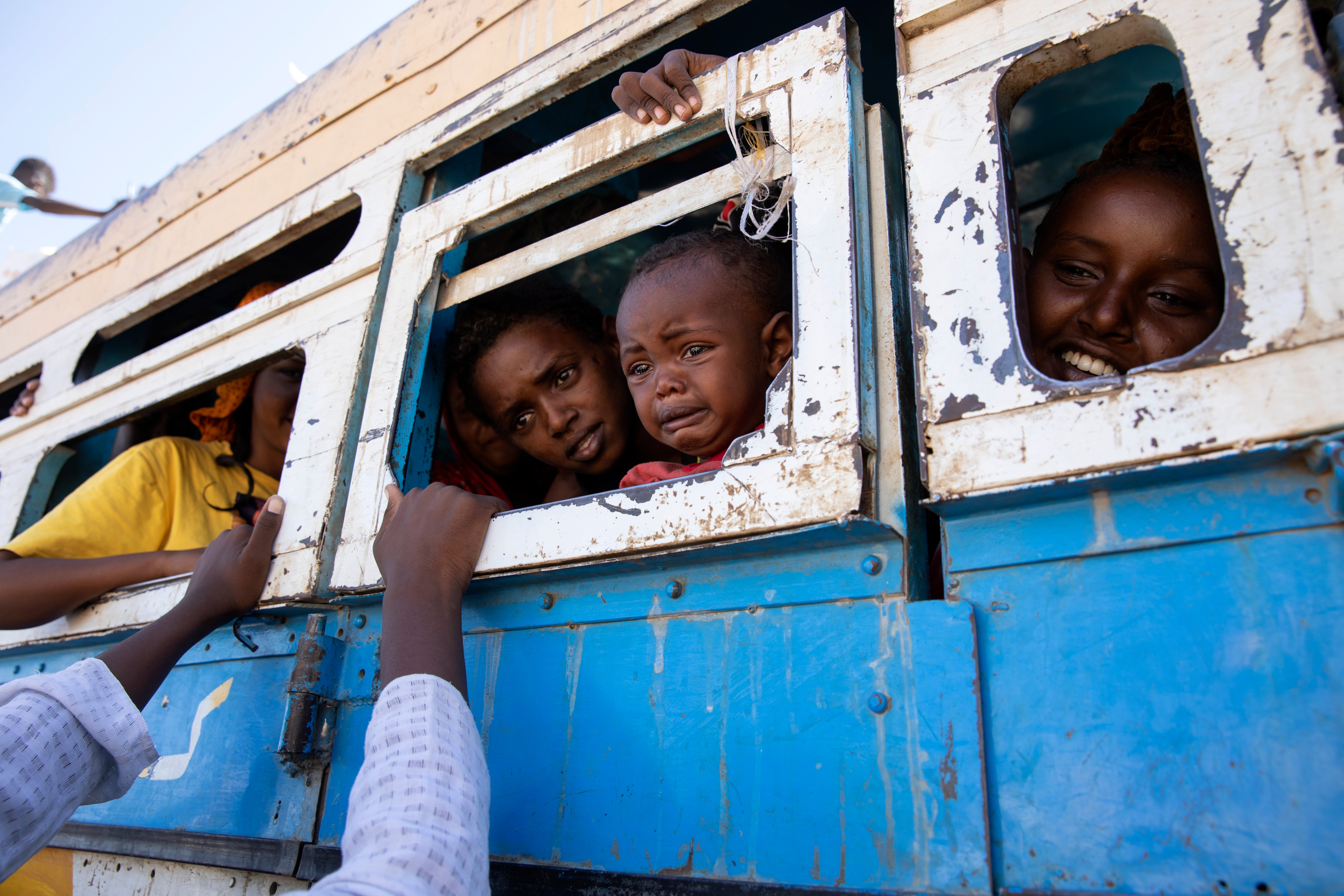AP PHOTOS: War forces thousands of Ethiopians into Sudan

Your support helps us to tell the story
From reproductive rights to climate change to Big Tech, The Independent is on the ground when the story is developing. Whether it's investigating the financials of Elon Musk's pro-Trump PAC or producing our latest documentary, 'The A Word', which shines a light on the American women fighting for reproductive rights, we know how important it is to parse out the facts from the messaging.
At such a critical moment in US history, we need reporters on the ground. Your donation allows us to keep sending journalists to speak to both sides of the story.
The Independent is trusted by Americans across the entire political spectrum. And unlike many other quality news outlets, we choose not to lock Americans out of our reporting and analysis with paywalls. We believe quality journalism should be available to everyone, paid for by those who can afford it.
Your support makes all the difference.They took with them with donkeys and beds and motorcycles and colorful cloths that they now drape over pipes to create shelters. Others left their shoes behind as they crossed a river to safety
Tens of thousands of Ethiopians who just weeks ago were contemplating the harvest season now huddle in refugee camps in Sudan They ran from fields and homes and hospital rooms as months of tensions between Ethiopia’s government and that of its defiant Tigray region erupted into deadly fighting.
Some walked for days to reach the border, and once they did, they were packed into buses or trucks for an arduous, 11-hour journey to a camp. As one vehicle left, a baby cried hysterically, and his brother held the infant toward the window for fresh air, explaining that the child was hungry and dehydrated and the bus too crowded.
Once at the camp, they wait. For food, for word from loved ones, for water. Some crowd around a tap for hours before they can fill up their buckets. Children as young as 7 struggle to lift the heavy jugs onto their backs.
Many arrived malnourished. One woman who is 9 months pregnant, weighed just 45 kilograms (100 pounds). She wept when she saw the number on the scale. Another received a nutrition packet but couldn’t manage to eat it.
The Tigray region remains largely cut off from the world, but still many of the refugees surround a small TV screen in the hopes of learning what might be happening back home. For many, it's their only source of information since they lost cell phones along the way.
As they watch the news, some of the young ethnic Tigrayan men say they hope to go back to fight for their homeland. Others fear they might never return: They tell of soldiers raiding their homes, beating them and neighbors in the street and leaving them for dead. Witnesses have said that hundreds of people were massacred in the town of Mai-Kadra, targeted because of their ethnicity — though there are conflicting accounts of who killed whom.
When night falls, the mood changes. The oppressive heat lifts. The aid workers go home. Kids dance to pop music, teens gather to drink coffee and smoke water pipes, and adults discuss politics. One man hopes that one day Tigray will secede from Ethiopia.
"I do not identify as Ethiopian; I am Tigray,” said Hayle Mariam, a 25-year-old refugee. “When a married couple cannot continue, what do they do? They get a divorce — we need our divorce from Ethiopia.”